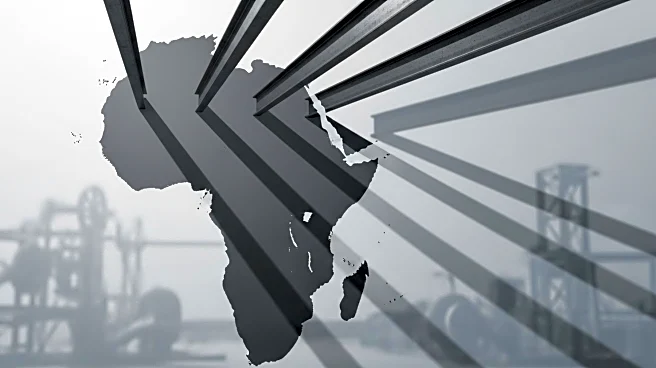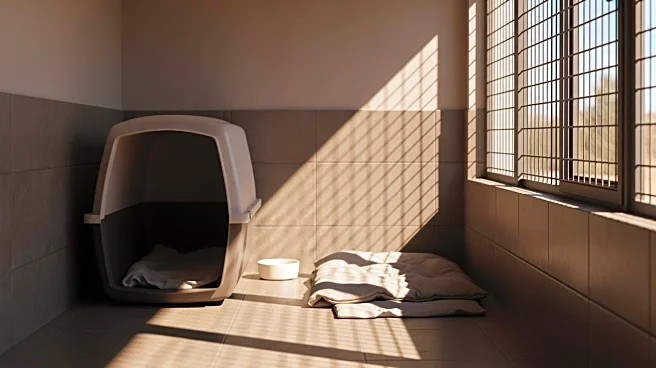What's Happening?
The European Union has announced a significant increase in steel import tariffs, doubling them to 50 percent. This move aims to protect Europe's struggling steel sector by curbing global overproduction. While African exporters are largely exempt from these new measures, the continent may still face challenges as redirected steel from major producers could flood regional markets, potentially undercutting domestic industries and slowing industrial growth.
Why It's Important?
The EU's decision to tighten steel import rules could have broader implications for African economies, particularly those reliant on steel exports. While exemptions provide temporary relief, the influx of cheap steel could disrupt local markets and hinder industrial development. This situation underscores the interconnectedness of global trade policies and their impact on emerging economies, highlighting the need for coordinated policy responses to protect domestic industries.
What's Next?
African countries may need to implement strategic measures to safeguard their domestic steel industries from the potential influx of redirected steel. This could involve strengthening trade policies and exploring regional cooperation to mitigate the impact of global trade shifts. The situation also presents an opportunity for African nations to reassess their industrial strategies and enhance competitiveness in the global market.
Beyond the Headlines
The EU's protectionist stance raises questions about the balance between safeguarding domestic industries and fostering global trade. The situation highlights the complexities of international trade relations and the need for equitable policies that support sustainable economic growth across regions.









